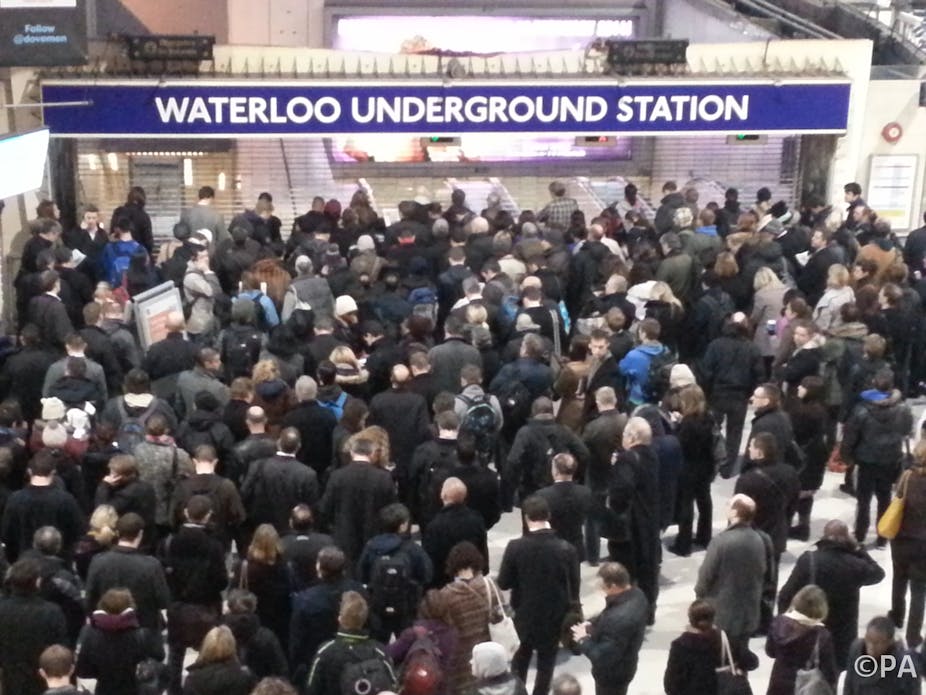Predictably, the newspapers have been full of reports of “Tube chaos”, millions “facing transport misery”. In the Daily Mail, an enterprising editor has conflated the storms which have caused rail cancellations throughout Britain with the 48-hour strike on the London Underground: “92mph winds reported in Isles of Scilly while passengers in London face travel chaos because of Tube strike”.
London’s Evening Standard newspaper found a picture, snapped by a disgruntled commuter as the strike got underway on Tuesday night, of an information booth worker apparently asleep, prompting the Tweet: “This photo taken this evening doesn’t bode well for your argument that ticket offices should stay open.”
But there is little real discussion about why underground staff across London have voted, by a 75% margin, to take action.
The strike, called by the RMT and the ticket office union TSSA, is about a mix of job cuts, safety, and longer-term plans of London’s mayor, Boris Johnson, to slash the cost of running the service. Johnson forced through the closure of ten fire stations across London only last month, and Londoners may well be right to begin to feel a little concerned about their safety in this regime of austerity.
Perhaps that is why, despite the massive inconvenience caused to workers across the capital by the strikes, public opinion appears to be on the side of the unions. According to a poll by Survaton, almost two-thirds (65%) of underground users say industrial action is justified as a last resort against Transport for London (TfL)’s plans to close all ticket offices by next year.
Community support
Indeed, the RMT and TSSA have been attracting user groups to their cause, and both Disabled People Against the Cuts (DPAC) and Hands off London Transport (HOLT) campaigns have come out in support of the strikes. Many unions have now learnt the dangers of not involving user groups in their campaigns against austerity, especially in the public sector where job cuts often mean service cuts. The civil servants union, PCS, for example, now works closely with such organisations as London Citizens, the Citizens Advice Bureau, and the Howard League for Penal Reform in its campaigns against civil service cutbacks.
Unison, the local government and public utility union, has also worked comfortably with the Defend Council Housing pressure group. Britain’s largest union, Unite, also has a community arm, and donates money regularly to community organisations who are pledged to defend public services. Indeed, it may the case that unions must seek to expand their “sword of justice” role if they are to begin to renew membership and be taken more seriously once again by employers.
This is especially so when the traditional ties between the Labour Party and the unions are being relaxed by Ed Miliband. Some would argue, should this evolutionary process continue, that unions may even begin to resemble their early pioneers, with a remit that goes beyond the workplace to wider civil society in pursuit of what the British Marxist historian E P Thompson called the “moral economy”. We must await the outcome of the tube strikes, alongside the renewed strikes in universities on Thursday, before we can pass judgement.

